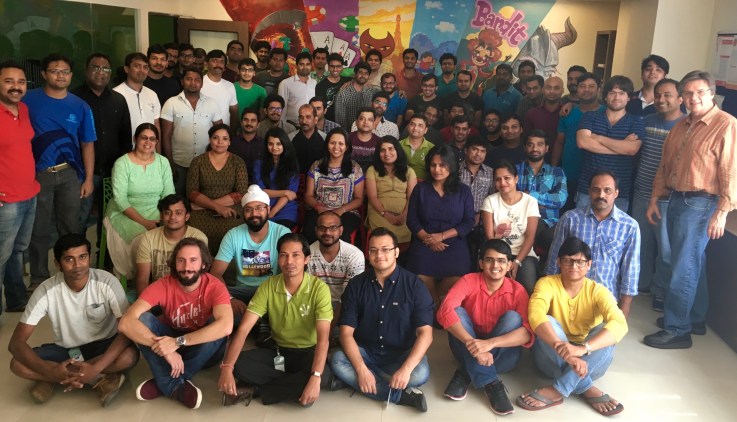The distance between Zynga’s offices in the United States and a gaming startup in Bengaluru might seem far, but it was a straightforward road for Mark Skaggs, who is best known as the co-creator of FarmVille. Five months after leaving Zynga, Skaggs is taking on a new role as a director at Moonfrog Labs, where he will develop new smartphone games for Indian players.
Moonfrog Labs, which has raised $15 million in funding from Tiger Global and Sequoia Capital so far, was founded by former Zynga India developers in 2013. Skaggs tells TechCrunch that he first met Moonfrog Labs’ founding team, which includes Tanay Tayal, when he spoke at a developer conference in India a few years before that.
“The experience was great and energizing because there was a group of people who had drive and hunger and wanted to learn how to make good games,” he says.
While helping see Zynga through its initial public offering and developing titles like Empires & Allies, Skaggs kept in touch with Tayal. After Skaggs left Zynga, he worked with Moonfrog Labs remotely before deciding to join its leadership team.
“I wanted to find people with the same values for making games—transparency, openness, respect for creative leadership, and long-term thinking instead of short-term chasing,” he says. Now Skaggs plans to split his time between Bengaluru and his home in Texas. While in India, he will help launch projects and mentor Moonfrog Labs’ game creators.
Currently the world’s second-largest smartphone market, India’s smartphone users are expected to double to 314 million by 2017, making it a new but promising market for mobile developers. According to Newzoo-OneSky, the country’s mobile gaming market is growing at a compound annual growth rate of 134.5 percent and expected to hit $571.6 million this year.
“The Indian game industry is still fairly nascent and young. We’ve had some expertise running games for the Western audience and some successes with local games from an Indian perspective,” says Tayal. “What Mark brings to the table is a lot more experience of building top-notch games across multiple platforms. That brings a lot of value to us, in terms of being able to jumpstart our knowledge.”
Game developers in India have to solve many challenges. One is developing titles that can run on a multitude of Android smartphones—including very basic and cheap models—and not burn up users’ slow and costly data. Meanwhile, game content has to appeal to people from the country’s extremely diverse array of cultural backgrounds. Moonfrog’s games already use different languages and incorporate holidays and events, like Holi, to appeal to local users.
Over the last two months, Skaggs has been busy learning about the Indian consumer market and welcomes the challenge of creating games that will keep up with the country’s evolving mobile usage habits.
“The audience will have the opportunity to go through the experience of getting their first smartphone and that first experience of gameplay and then the next year, when they are ready to upgrade, they are ready for more complex game experiences. They see it with fresh eyes and we get to learn what audiences like and deliver them fresh entertainment,” he says.
“I’m an expert at making games and Moonfrog is an expert at India, so we’ll combine forces and make some really special things for gamers here.”
